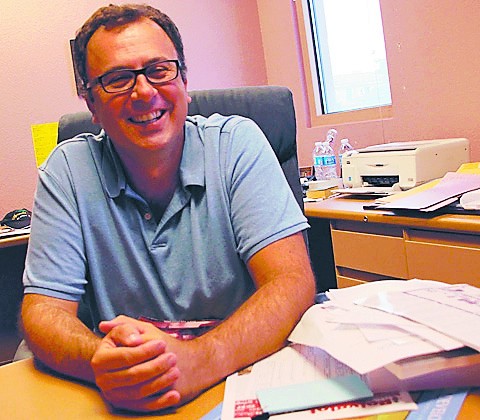This week, the UA will host its very first hip-hop symposium, which aims to deflate stereotypes.
“The Poetics & Politics of Hip-Hop Cultures” is a two-day on-campus event that invites the Tucson community to explore various artistic aspects of hip-hop. All events and performances are free and open to the public. Slam poets, scholars, DJs, archivists and speakers are collaborating to put on this symposium, including DJ Odilon, the 2010 International DJ Association Team World Champion.
The inspiration for this educational celebration stemmed from the new minor in hip-hop that was recently established through the Africana studies program at the UA. This event is meant to kick off and honor the university’s new program, as well as deflate some of the stereotypes that many associate with hip-hop.
“We need to show and educate that hip-hop is not just rap or rap music,” said Alain-Philippe Durand, the director of the School of International Languages, Literatures and Cultures, a professor of French and the principal organizer of the symposium. “It is a culture, and inside that culture is rap, but also dance, graffiti and many different subgenres … it is everywhere.
“Many people out there say hip-hop is misogynistic and promotes violence. Those things exist, just like in many disciplines. But if you go back to the origin, the idea of hip-hop was to promote peace, to stop killing each other and use words. It was a pacifist movement.”
Durand and his fellow organizers were motivated to earn recognition from those who don’t view hip-hop studies as a serious form of education, Durand said. He said he wants people, on a community and national scale, to realize that hip-hop studies is being covered in major universities such as Harvard, UC Berkeley and now, the UA.
“This is a chance for the university to connect with the community. It will not just be professors and students; there will be people from the Tucson area [here] to see what we are doing at the university and to have this exchange,” Durand said. “I really want students and non-students to get, hopefully, a new perspective of what hip-hop is and to come out of it with the idea to get involved and to participate in all of the things that hip-hop promotes: cultural diversity, peaceful actions and to engage in society and be a voice.”
Durand, along with other UA educators including Tani Sanchez, John Melillo, Praise Zenenga and Alex Nava, came up with the idea for the symposium in fall 2011. The Confluencecenter for Creative Inquiry, an organization with a competitive selection process, according to Durand, awarded the project $25,000, — the maximum grant that the organizers were able to receive. Ever since it was granted financial support from both the Confluencenter and the College of Humanities in fall 2012, the team has been working diligently to put the event together.
Laura Miller, a UA graduate student in creative writing, worked closely with Durand to help create websites, handle publicity, rent equipment and fly in talent from overseas for the event. There has been push back from other departments throughout the process of preparing for the event. Miller said this leads her to believe that people have commercial or superficial stereotypes of hip-hop.
“I want them to understand that hip-hop is a serious place of study and that it has a place at the university,” Miller said. “Also, just to have fun.”
The symposium will serve as a platform for a diverse group of speakers and performers.
“Hip-hop is something you could go out and ask anybody about, and you are not going to find a single person, regardless of their age, who says, ‘I have never heard about it,’ or ‘I have nothing to say about it,’” Durand said. “Some people will despise it and some people will defend it, but nobody is going to be indifferent. That is why it is important to have those debates, and the university should be the place where those debates happen.”
Miller said it is important to experience a variety of cultures that some may not necessarily relate to initially.
“I think experiencing cultures other than your own helps to create compassion and understanding for other people,” she said.
After a year and a half of preparation, Durand expressed his gratitude for and excitement about the symposium.
“I think we are very lucky at the UA that we have an opportunity such as this one. Ten or 15 years ago, or even today, there are many places in this country where they will not allow an academic, serious symposium on such a topic,” Durand said. “That testifies to what we all know, that the UA is a great university that is open to things and that breaks boundaries. Let’s celebrate together.”








